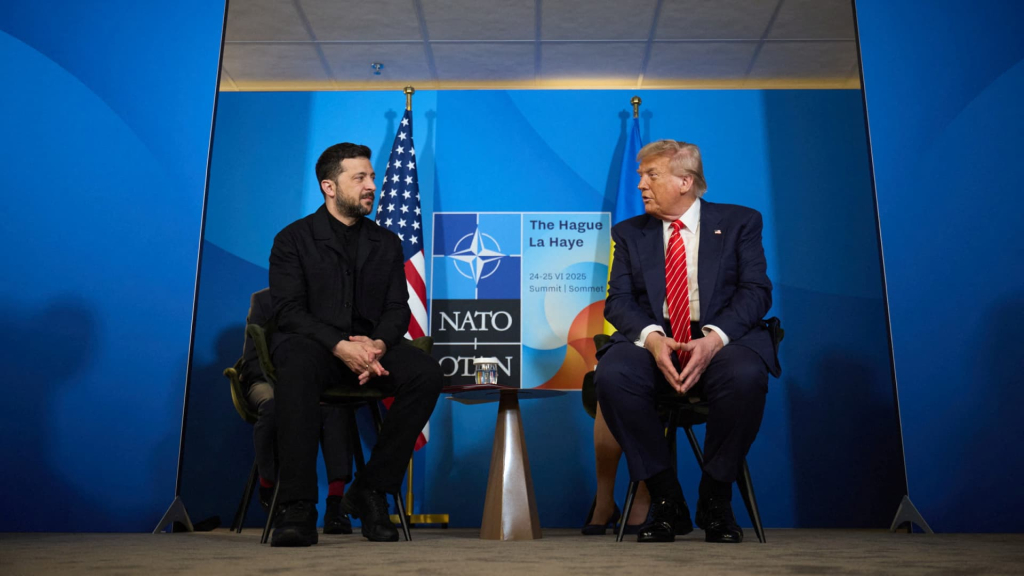A bipartisan effort in the United States Congress aimed at imposing sanctions on Russia is gaining traction as lawmakers seek to compel Moscow to engage in credible peace talks with Ukraine. However, the initiative still requires the endorsement from the White House to move forward.
Supporters of Ukraine in Washington and Kyiv are anxiously anticipating a “major statement” on Russia from President Donald Trump, which he has scheduled for Monday. These advocates have been hoping for a more robust commitment to the sanctions bill from the Republican president for several months.
Trump, who pledged to put an end to Russia’s aggression in Ukraine during his election campaign, has yet to disclose the content of his forthcoming announcement. Recently, he has expressed increased frustration with Russian President Vladimir Putin, particularly concerning Putin’s resistance to a ceasefire and the rising civilian casualties stemming from ongoing Russian assaults.
On Tuesday, Trump authorized the dispatch of U.S. defensive weaponry to Ukraine. Just two days later, he appeared closer than ever to supporting the sanctions legislation, although sources indicate he has not fully agreed to the text of the bill.
Senate Majority Leader John Thune revealed that a vote in the Senate could occur this month. Mike Johnson, the leading Republican in the House, also expressed optimism about the bill’s prospects, while Senator Lindsey Graham and Secretary of State Marco Rubio have assured European diplomats that the legislation is set to progress soon, according to insiders.
Graham highlighted the urgency of the sanctions initiative, asserting on social media that the Senate would be moving forward with a rigorous sanctions bill not only against Russia but also targeting countries like China and India that procure Russian energy products that support Putin’s military efforts.
Despite this momentum, it remains uncertain whether Trump has completely abandoned his diplomatic overtures to Russia. Supporters of the bill note that the extensive veto power the White House is seeking might render the legislation largely symbolic, rather than a substantive tool for change.
Speaking to the press in Kuala Lumpur after a recent meeting with Russian Foreign Minister Sergei Lavrov, Rubio mentioned discussing a “new idea” for diplomatic engagement, suggesting he would relay it back to Trump for further consideration. He refrained from elaborating on the specifics but hinted that it could pave the way for negotiations, albeit not necessarily guaranteeing peace.
Rubio reiterated Trump’s dissatisfaction with Russia’s inflexibility and mentioned that American officials had previously communicated to the Russians that the sanctions legislation was poised to pass.
Work ongoing
The sanctions bill, principally sponsored by Graham and Democratic Senator Richard Blumenthal, aims to impose significant penalties on a range of Russian officials, governmental entities, and financial institutions.
Additionally, it seeks to penalize nations that maintain trade ties with Russia by imposing punitive tariffs as high as 500% on countries purchasing Russian oil, gas, uranium, and other exports.
Ukrainian President Volodymyr Zelenskiy has consistently urged Western allies to escalate sanctions against Russia to compel the Kremlin into agreeing to a ceasefire and ultimately concluding the ongoing conflict, which has persisted for over 40 months now.
According to two U.S. officials, momentum around the legislation has accelerated over the past week. However, sources close to Trump suggest that revisions to the text are still required, as it currently does not provide the president the necessary latitude to pursue his foreign policy agenda without congressional limitations.
The White House is collaborating with Congress and the bill’s sponsors to ensure its alignment with the president’s foreign policy goals. According to one person privy to the drafting process, congressional staff are currently addressing technical challenges, including safeguarding the operations of the U.S. embassy in Moscow from being impacted by the sanctions.
A representative for Graham informed Reuters that the bill is unlikely to reach the floor until the week of July 21, at the earliest, due to other legislative commitments. With the House of Representatives set to begin its August recess in two weeks, the legislative calendar is tight, particularly if any proposed cuts to foreign aid and public broadcasting, which have already passed the House and are under Senate consideration, necessitate additional votes.
Some proponents of the bill recognize that its potential impact may be limited, given Trump’s broad authorities to veto sanctions or issue them through executive action if he so chooses. As one Senate Republican staffer noted, “The president already has all these authorities.”


























